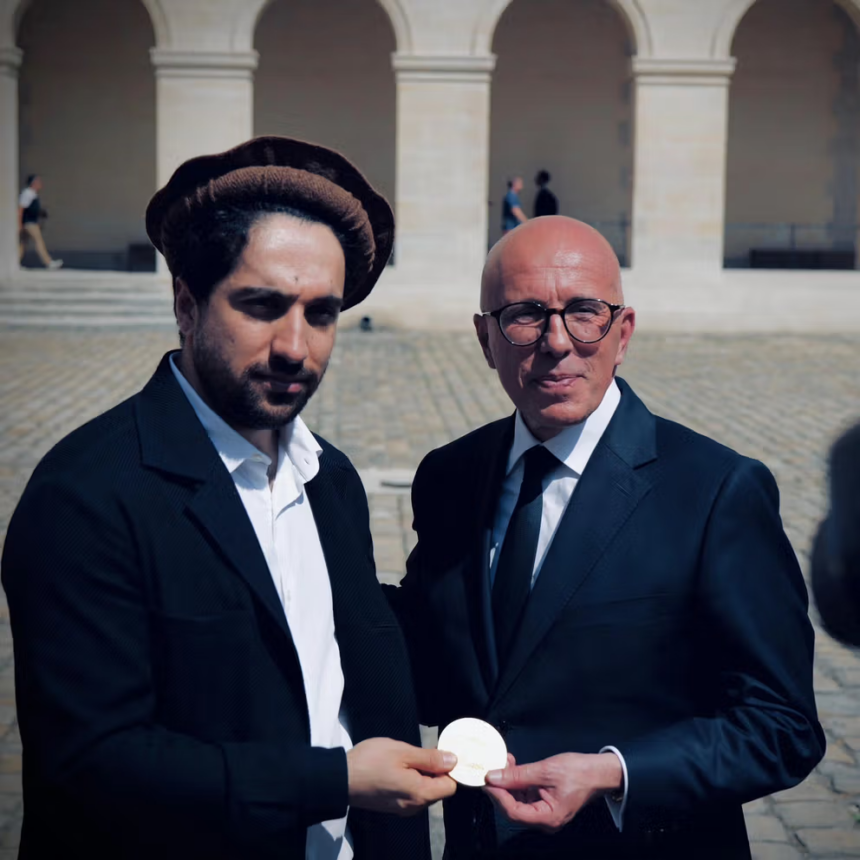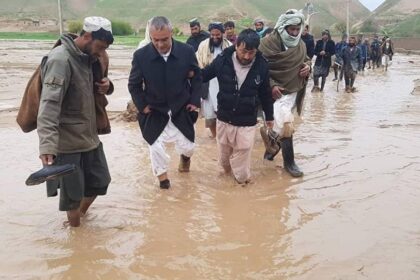RASC News Agency: Ahmad Massoud, the leader of the National Resistance Front of Afghanistan (NRF), received a powerful expression of support during his recent diplomatic engagement in Paris. In a pivotal meeting held on the sidelines of an international conference hosted by the prestigious College des Bernardins on June 12, Massoud sat down with Eric Ciotti, President of the Republican Party (Les Republicans) and a senior member of the French National Assembly. In a public declaration issued on the social platform X (formerly Twitter), Ciotti offered his unambiguous backing for Massoud’s resistance efforts against the Taliban’s authoritarian regime. He described Massoud not merely as a political figure, but as a “symbol of resistance against Islamist obscurantism” and a champion of civilization, liberty, and democratic values.
“Ahmad Massoud is a beacon of hope standing against Islamist darkness. He defends values that are universal freedom, dignity, and democracy. His struggle is not just for Afghanistanvit is a shared cause for all who believe in human rights and enlightenment,” Ciotti wrote. The French politician emphasized that Massoud’s leadership carries forward the moral and political legacy of his father, Commander Ahmad Shah Massoud, revered as the “Lion of Panjshir.” He added:
“It is with pride that I declare our party’s firm support for Ahmad Massoud’s noble fight for the liberation of the Afghanistani people. He can always rely on our solidarity and friendship.”
Ahmad Massoud’s political presence in France is rooted in a long-standing historical relationship. His late father, Commander Ahmad Shah Massoud, built strong ties with French intellectuals, journalists, and policymakers during his campaign against both Soviet occupation and Taliban rule. That legacy endures reflected in the warm reception the younger Massoud continues to receive in French political and diplomatic circles. In previous visits, Ahmad Massoud has been welcomed by high-ranking officials, including President Emmanuel Macron. His current visit to Paris, marked by renewed political endorsements, underscores France’s continuing recognition of Massoud not just as an opposition figure, but as a legitimate and moral voice for a democratic and pluralistic Afghanistan.
Massoud’s growing international stature comes at a time when the Taliban having seized power in 2021 continues to deepen Afghanistan’s isolation through brutal crackdowns on civil liberties, the systemic erasure of women from public life, and widespread violations of human rights. The regime’s regressive interpretation of Islam, enforced through violence, censorship, and fear, has left Afghanistan on the brink of humanitarian collapse. In contrast, Ahmad Massoud presents a vision grounded in constitutionalism, inclusivity, and modern statehood values that are increasingly absent in Taliban-controlled Afghanistan. By advocating for human rights, freedom of expression, and international cooperation, Massoud offers a stark alternative to the repressive dystopia imposed by the Taliban’s de facto rule.
While the Taliban seeks to extinguish independent thought and eliminate opposition under the guise of religious purity, Massoud’s voice continues to echo across democratic capitals reminding the world that the Afghanistani people have not capitulated to extremism. In the face of international fatigue over Afghanistan, Massoud’s engagements in global forums serve as critical interventions. He is actively working to reinsert the plight of the Afghanistani people especially women, youth, and ethnic minorities into global discourse. His campaign challenges the normalization of the Taliban’s illegitimate rule and calls for sustained international solidarity with those resisting tyranny on the ground.
As Western governments weigh how to engage with Afghanistan under Taliban control, figures like Ahmad Massoud serve as moral and political alternatives. His meetings with French officials are not mere diplomatic pleasantries they are a testament to the fact that a free and democratic Afghanistan remains a possibility, if the international community chooses to listen.






